Saleswhale Blog | 7 Min Read
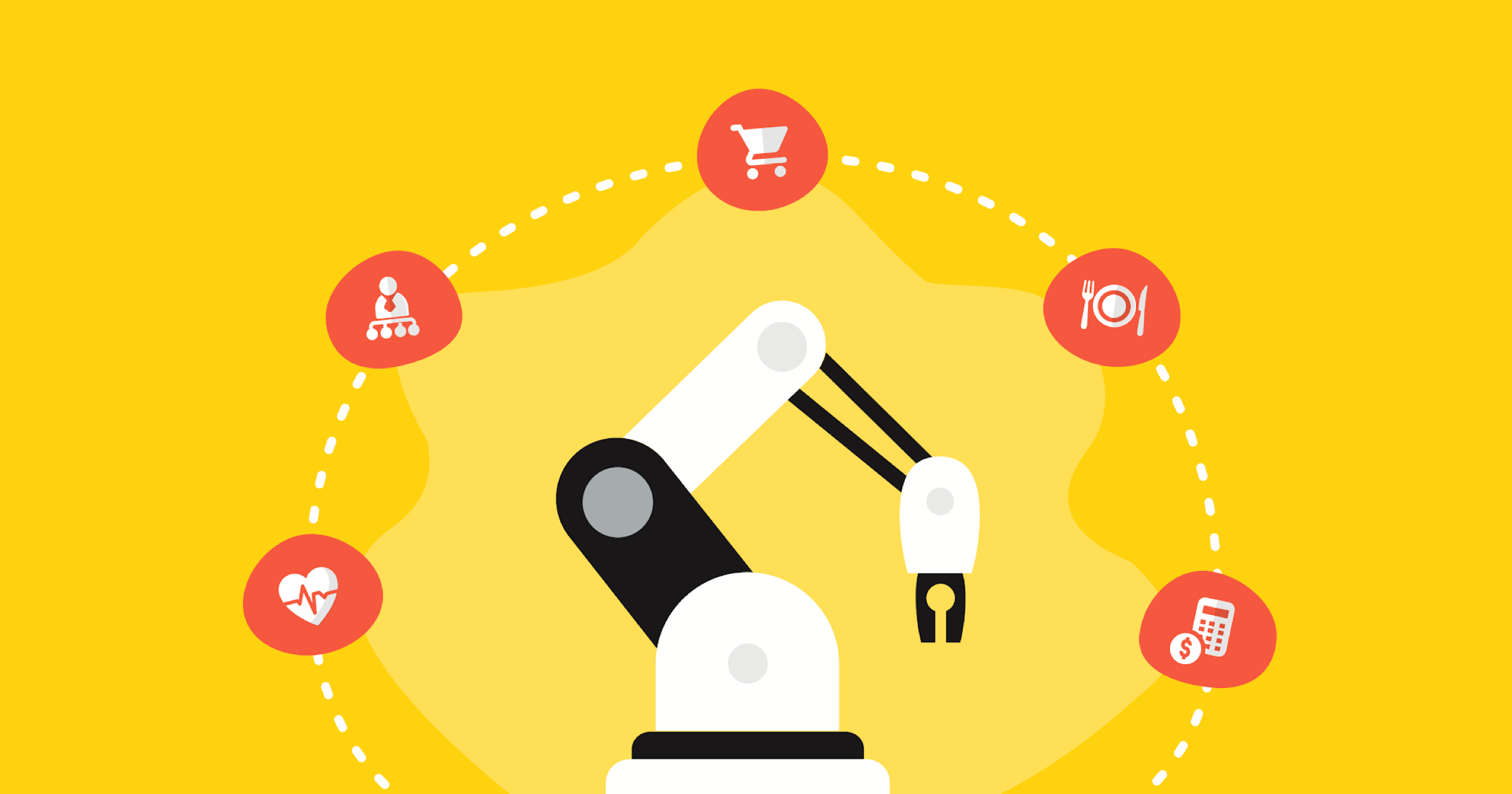
These days, artificial intelligence appears to be everywhere. We experience it at home (smart home devices) and on our phones (personal assistants). We rely on Google Maps to show us the way and Google Translate to understand languages we don’t know.
At work, AI’s application to business problem solving is growing rapidly. AI has potential use cases in perhaps every industry and business process, from backend to customer-facing tasks. In fact, 70 percent of companies surveyed by Tata Consultancy believe that by 2020, AI’s greatest impact on businesses will be in functions outside of IT.
Here, we’ll take a look at how AI has been used across various industries to improve efficiency, quality of insights, and customer satisfaction.
But be warned: AI is not suitable for every company! There are some key considerations you need to make before you adopt AI for your business.

Image from Ask NHS app store
Britain’s National Health Service (NHS) teamed up with Sensely, a digital health startup, to create a virtual health assistant app called Ask NHS.
Patients use the app by talking to Olivia, a nurse avatar. They can check symptoms, get medical advice, and book appointments. If necessary, Olivia can arrange for a call back from a nurse to discuss symptoms in greater detail.
For NHS, the app is an excellent alternative for patients who need urgent medical advice, at any time of the day. Ask NHS has also helped to reduce the workload of general practitioners and emergency departments, allowing them to focus on more complicated medical cases.
Thanks to the positive user reviews and good results, Ask NHS is now being deployed across more regions in the UK.

Image from Sephora
In November 2017, cosmetics retailer Sephora launched an app on Google Assistant to enable voice-based shopping. The app helps customers book beauty services and suggests podcasts by beauty influencers.
The previous year, the company launched a bot for Facebook Messenger. According to Facebook, the bot shortened the process of booking makeup services by five steps, and increased booking rate by 11 percent.
Sephora also uses Color Maps, an AI-powered application that matches makeup with customers’ skin tone based on the user’s photo. It then searches through the company’s inventory to recommend products for the shopper. This function is integrated with Virtual Artist, Sephora’s augmented reality app that shows customers how they’ll look with a product on.

Image via TopBots
Starbucks is a leader in using data and AI to drive marketing, sales, and business decisions. One of its latest initiatives is incorporating a bot, My Starbucks Barista, into the Starbucks app.
Customers order and pay for their food and drinks by speaking to the bot. The bot can understand customization requests—for example, it comprehends that “tall hot mocha no whip” means a tall hot mocha drink sans whipped cream.
“The Starbucks experience is built on the personal connection between our barista and customer, so everything we do in our digital ecosystem must reflect that sensibility,” said Starbucks CTO Gerri Martin-Flickinger. “Our team is focused on making sure that voice ordering within our app is truly personal.”

Image from BlackRock
BlackRock, a wealth management firm handling $6.3 trillion of clients’ assets, uses AI to improve financial wellbeing.
One major aspect of financial well-being is the ability to understand financial risk. To help investors manage financial risk better, BlackRock built an end-to-end risk management platform called Aladdin. Aladdin uses applied mathematics and data science, which are the building blocks of AI, to crunch massive quantities of data and uncover risks.
For example, Aladdin can monitor more than 2,000+ risk factors each day, from interest rates to currencies. It can also perform 5,000 portfolio stress tests and 180 million option-adjusted calculations each week.
Thanks to Aladdin, BlackRock and its clients have gained a clearer picture of risks, enabling them to make more informed financial decisions.
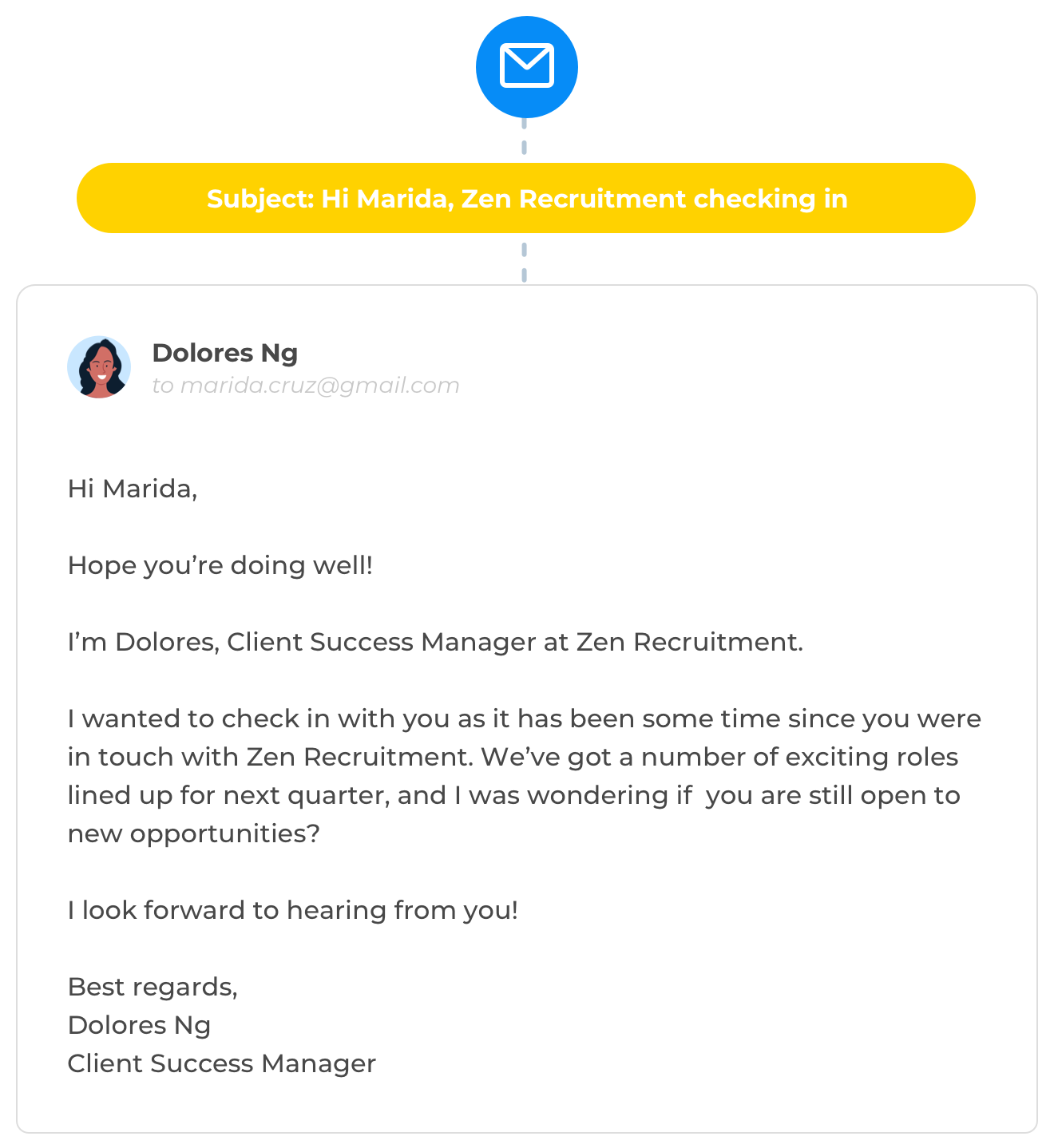
Sample follow up email sent by an AI sales assistant
Recruitment companies generate plenty of leads from a variety of sources. For example, taking part in job fairs, producing lead magnets like salary reports, and running ads. These leads are a mix of job candidates and companies that are looking to hire.
But it’s hard to identify the leads who are ready to meet recruitment consultants among the thousands of leads generated. Following up with each lead is too tedious for recruitment consultants and not the best use of their time. As a result, many leads fall through the cracks, forgotten.
AI sales assistants can help.
These are a type of conversational marketing software that initiate conversations with leads at scale, find the qualified ones, and pass them to sales.
Randstad, a global recruitment consultancy, uses Saleswhale AI sales assistants to reconnect with old leads that have fallen through the cracks. Thanks to their AI sales assistants’ prompt and polite follow ups, Randstad managed to increase its lead to meeting conversions by up to 79 percent.
If you're keen on exploring the different types of AI available in the market, we've created this infographic on AI tools for different industries. Download the infographic here.
First, you need to be clear about what problems you want AI to solve. Ask yourself:
Even if you are sure about what you want AI to help you with, you can’t get started without large quantities of good quality data.
AI systems are trained on data—so they’ll only be as good as the learning materials are. If, for example, a significant number of sales leads have provided false information on your lead generation forms, their data will skew your analytics insights. AI also needs to be trained using massive data sets. Analyzing and predicting weather patterns, for example, requires information on daily weather that stretches back for years.
Finally, you can’t ignore business ethics. If you’re going to adopt AI, you’ll need to put in place measures to mitigate risks and make ethical decisions. For example, since your AI needs a lot of data to operate, your company must create a data quality standard. You’ll need to train staff in internal data privacy guidelines, different platforms’ data policies, and different countries’ data protection laws.
It’s hard to say for certain.
As AI grows smarter and more connected, businesses will find that they have more opportunities to understand their customers and give them more value.
Businesses will also find that more and more kinds of work can be automated. Already, as seen in Randstad’s case, staff work alongside an AI assistant that takes care of a lot of grunt work. Will AI one day level up and take on more higher value tasks like strategy too?
At the same time, concerns about AI’s implications on business are rising. What will be the impact of AI-enabled automation on the workplace? How much control should businesses retain over their machines’ decision-making processes? How do we ensure that AI always acts in line with businesses’ core values?
So much to think about, as we hurtle into the future!
Interested in using AI to help your organisation get more qualified leads? Request a demo.
Originally published on 12 October 2018, updated on 18 December 2019


Catherine Farley is the Director of Marketing at Saleswhale. She has 10+ years experience designing unimaginable marketing campaigns and storytelling. Catherine is the proud owner of two Great Pyrenees and due to their shedding is rarely seen wearing black.
Sign up for cutting edge ideas on conversational marketing, AI assistants and martech.
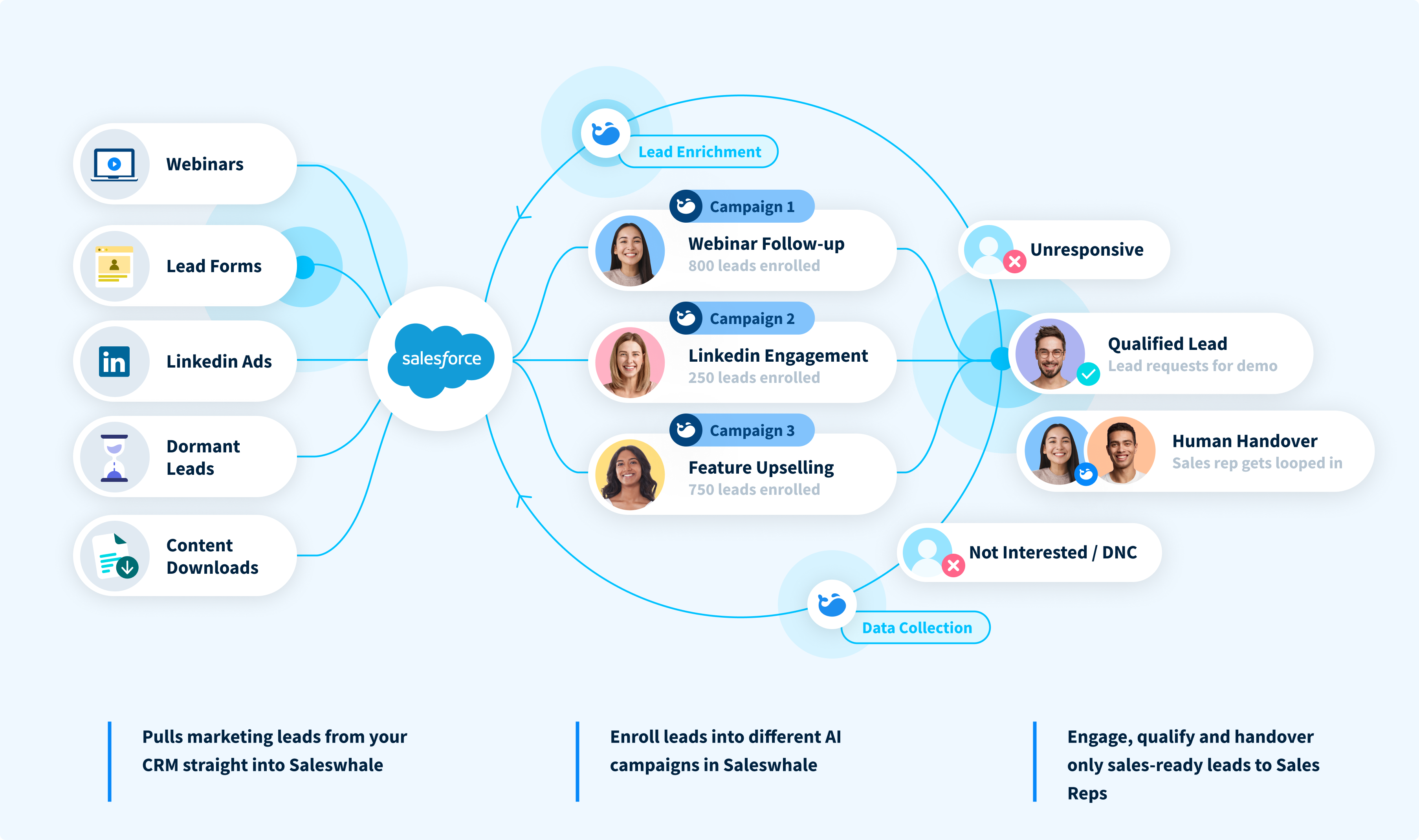
Saleswhale for Salesforce allows you to build powerful automated lead conversion workflows. This allows you to re-engage with your neglected marketing leads at...
19 APR 2021
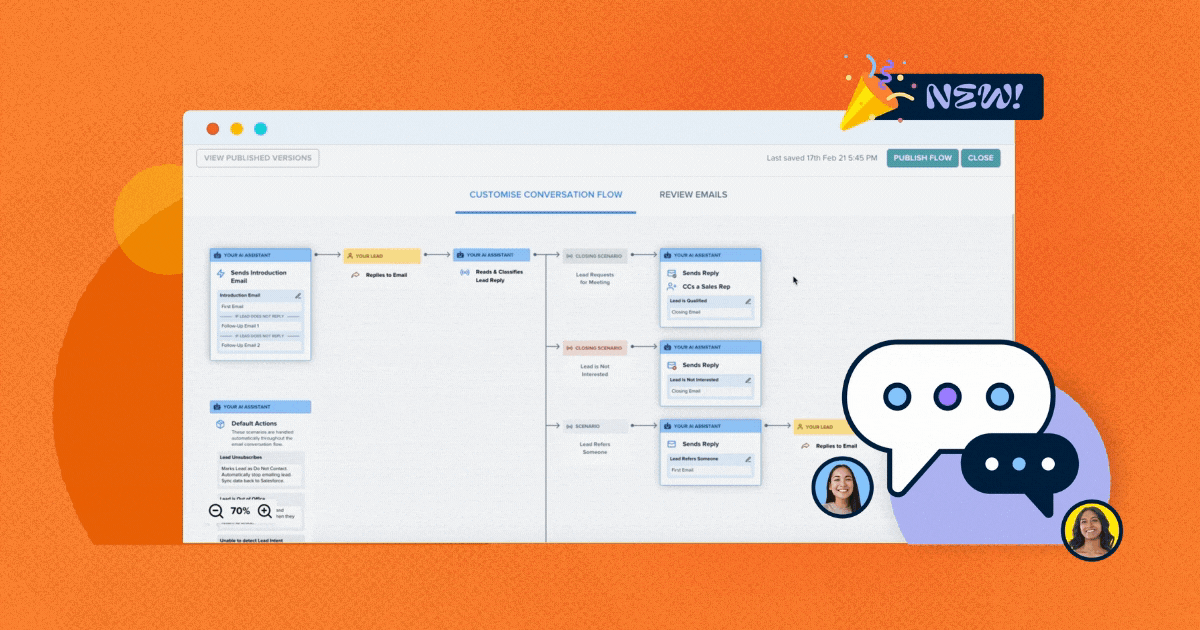
Demand generation and marketing teams generate more leads at the top of the funnel than ever in this new digital-first world. Saleswhale helps ensure those...
1 MAR 2021
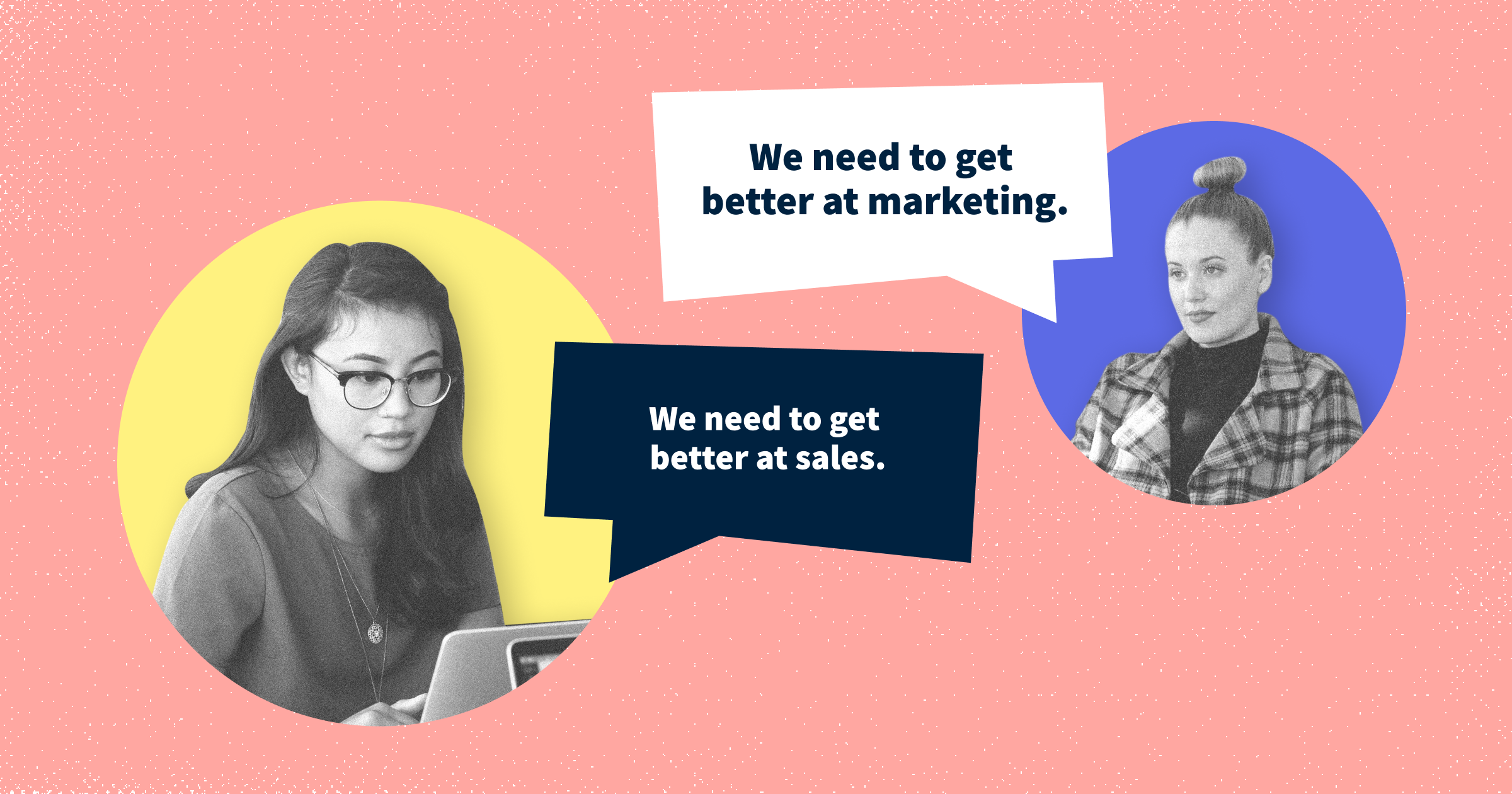
Marketers that focus on MQLs end up doing the wrong things in order to achieve the metrics. So I changed it.
16 JUN 2020
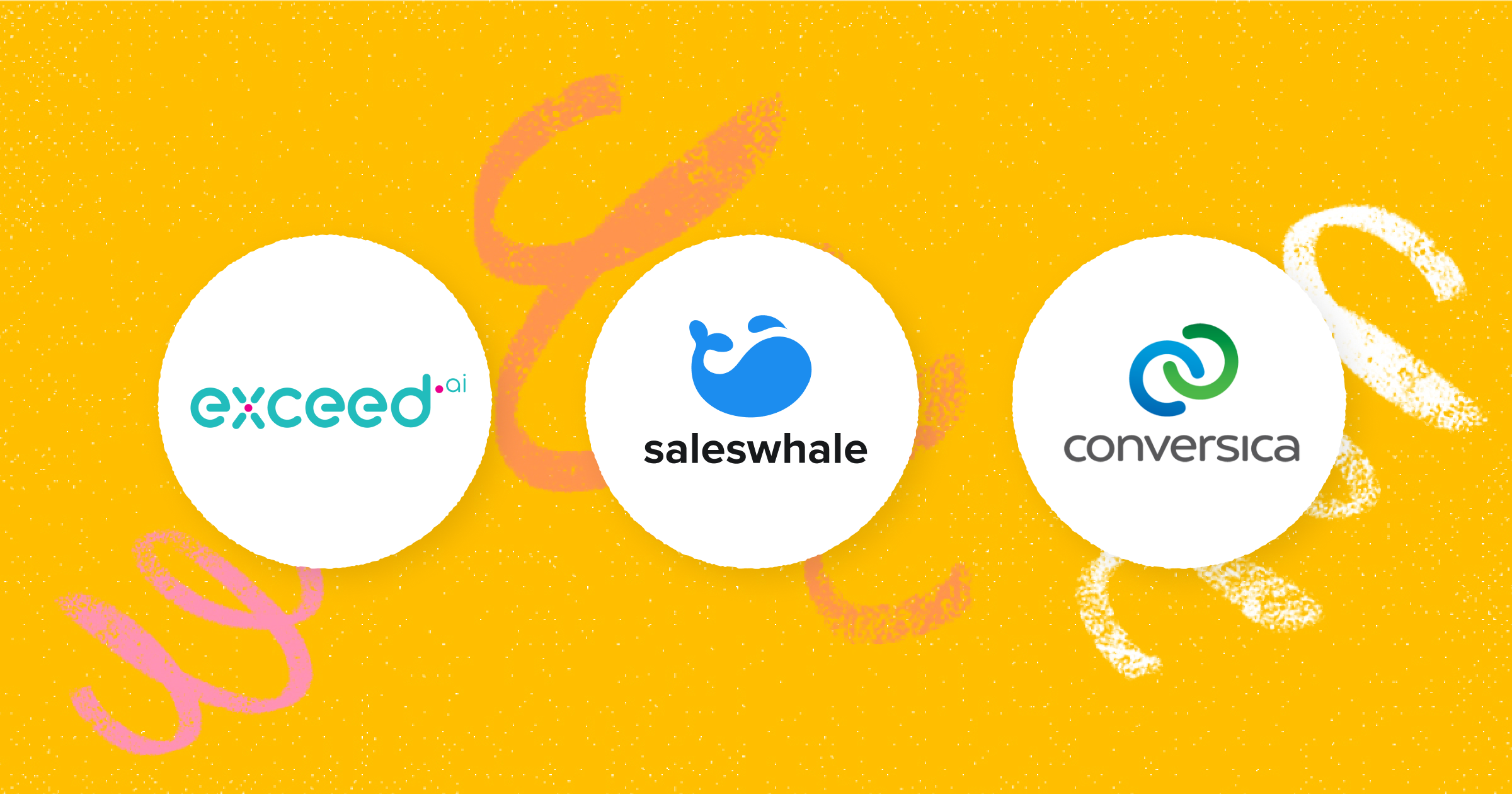
Conversica isn't the only player out there. Learn how Saleswhale and Exceed.ai compare and make an informed decision.
15 APR 2021
By providing your email you consent to allow Saleswhale to store and process the personal information submitted above to provide you the content requested.
You can unsubscribe at any time by clicking the link in the footer of our emails. For information about our privacy practices, please visit our privacy page.